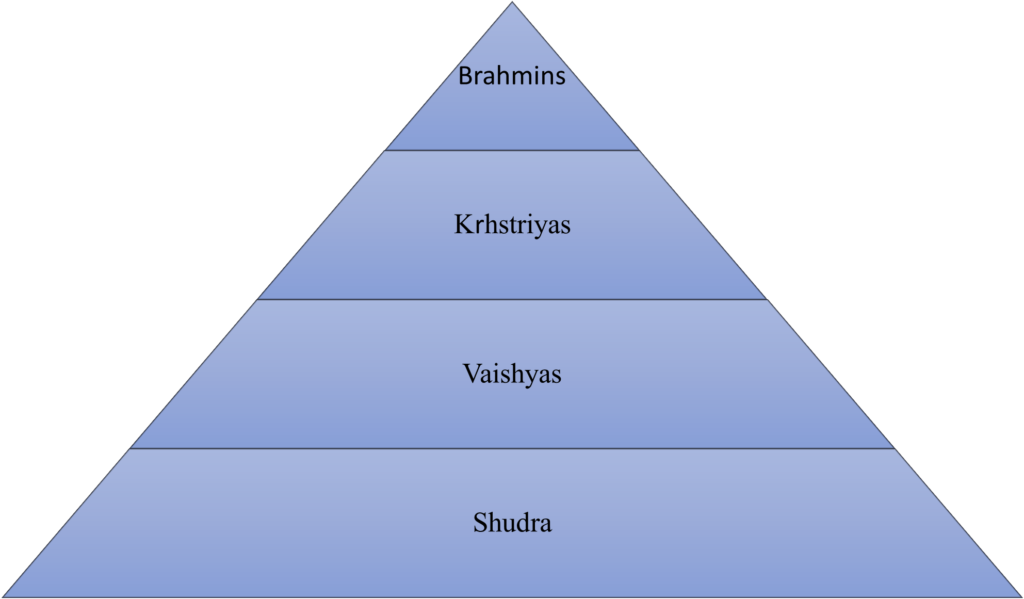
By
Shalini Dhyani
Reservation in India results from the age-old caste, which divides the society into four parts: brahmin, khstriyaas, and Shudra. Reservation is a positive discrimination which means to reserve seats for particular sections of society in government jobs and educational institutions. Because of the huge injustice that occurred to this section to provide them equal status with other sections reservation was needed at that time. Reservation is a British concept, it violates equality somewhere discourages competition, and divides people. Backwardness could be present in three ways: that is socially, financially, and physically. It provides equal rights to everyone, based on need. Reservation is necessary but also it should be limited.
This paper defines the historical background of reservations, explains of Mandal Commission, Supreme Court views on reservation with cases, and constitutional provision that deals with reservation.
HISTORICAL BACKGROUND OF RESERVATION:
The origin of reservation was from age-old caste system.

- The idea of caste-based reservation was given by William Hunter and JyotiRao Phulai in 1882, the reservation which we see today was introduced in 1939 when the communal award was presented by British prime minister Macdonald.
- There were provisions made by the award for separate electorates for Muslims, Sikhs, Anglo-India, Dalits, Indian Christians, and Europeans.
- The Poona Pact after long negotiations was signed by Gandhi and Ambedkar and held that there would be a single Hindu electorate with certain reservations.
- Initially after independence reservation was for Schedule Caste and Schedule Tribe. Later in 1991, OBC was included after the recommendation of the Mandal Commission.
- Ambedkar views on reservation: he said that “reservation should be considered as temporary solution otherwise it will end the rule of equality.” During the debate on Article 16 in the Constituent Assembly, several members advocated against reservation, claiming equality of opportunity. Ambedkar acknowledged the notion but emphasized the importance of making facilities for historically underserved communities to get access to public jobs. He also emphasized the importance of limiting reservations to a small number of seats to uphold the notion of equal opportunity.[1]
- In favor of the reservation the member of Constituent Assembly S Nagappa held that in a country where there are economic, social, and political minorities present, if we do not give reservations to certain minorities, their existence in society will vanish and they will be treated as a slave in India.
MANDAL COMMISSION:
- Kaka Kalelkar chaired India’s first Backward Classes Commission in 1953 to address the lack of recognized lists of “weaker sections” or poverty-stricken individuals with a “degraded standing in the Hindu social framework.” The commission recognized 2,399 backward castes, 837 of which were classified as “extremely backward” based on caste as the key indication of underdevelopment. The federal administration ignored the conclusions, thinking they would delay India’s eventual establishment of a communist, lower-caste state. The Mandal Commission also categorized non-Hindus as belonging to backward castes if they had previously belonged to “untouchable” castes before converting to a non-Hindu faith. However, Prime Minister V.P. Singh’s suggestions were carried out, resulting in protests and a bigger proportion of backward classes combined with scheduled tribes and castes in several southern states.[2]
- By the use of Article 340, under the chairmanship of B.P. Mandal the president appointed a backward class commission in December 1978.
- The function of the commission was to determine criteria for socially and educationally backward classes and recommend the steps for their advancement.
- The Mandal Commission prepared a report which defined that there were about 52% OBC and 27% reservations should be provided to them.
- There were eleven indicators of social, educational, and economic backwardness determined by the commission.
- Among the Hindus backward classes were also identified and also from non-Hindus the backward classes were identified by the Mandal commission.
- The implementation of the Mandal Commission by the government sparked significant demonstrations, including student self-immolation, which was subsequently challenged in the Indra Sawhney versus Union of India case. The Mandal Commission has made an important contribution to the participation of Scheduled Castes (SEBCs) in government positions and educational institutions, with OBC representation constantly exceeding 27% from 2014 to 2021. The quota policy has also made higher education more accessible to many OBC students, resulting in a considerable increase in OBC enrollment in institutions and colleges. The commission’s recommendations, however, have had little impact on upliftment, with only 40 out of 6,000 castes and communities gaining 50% reservation privileges for admission and civil service recruitment. Politicians have also politicized the commission, utilizing it as a tool for vote bank politics. Furthermore, the reservation scheme has harmed merit by excluding many excellent candidates and filling seats with less suitable people.[3]
CONSTITUTIONAL PROVISIONS REGARDING RESERVATION:
- Part XVI deals with the reservation of SCs and STs in the Center and State legislature.
- Article 15 (4): Nothing in this article or clause (2) of Article 29 shall prevent the State from making any special provision for the advancement of any socially and educationally backward classes of citizens or the Scheduled Castes and the Scheduled Tribes.[4]
- Article 16(4): Nothing in this article shall prevent the State from making any provision for the reservation of appointments or posts in favor of any backward class of citizens which, in the opinion of the State, is not adequately represented in the services under the State.[5]
- Article 16(4)(A): Nothing in this article shall prevent the State from making any provision for reservation 3 [in matters of promotion, with consequential seniority, to any class] or classes of posts in the services under the State in favor of the Scheduled Castes and the Scheduled Tribes which, in the opinion of the State, are not adequately represented in the services under the State.[6]
- Fifth Schedule and Sixth Schedule: deals with the control of scheduled areas or tribes and administration of tribes of Meghalaya, Assam, Mizoram, and Tripura.
- Article 330: Reservation of seats for Scheduled Castes and Scheduled Tribes in the House of the People.[7]
- Article 243 T: (1) Seats shall be reserved for the Scheduled Castes and the Scheduled Tribes in every Municipality and the number of seats so reserved shall bear, as nearly as may be, the same proportion to the total number of seats to be filled by direct election in that Municipality as the population of the Scheduled Castes in the Municipal area or of the Scheduled Tribes in the Municipal area bears to the total population of that area and such seats may be allotted by rotation to different constituencies in a Municipality. Constitution and composition of Wards Committees, etc. Reservation of seats.
(2) Not less than one-third of the total number of seats reserved under clause (1) shall be reserved for women belonging to the Scheduled Castes or, as the case may be, the Scheduled Tribes.
(3) Not less than one-third (including the number of seats reserved for women belonging to the Scheduled Castes and the Scheduled Tribes) of the total number of seats to be filled by direct election in every Municipality shall be reserved for women and such seats may be allotted by rotation to different constituencies in a Municipality.
(4) The offices of Chairpersons in the Municipalities shall be reserved for the Scheduled Castes, the Scheduled Tribes, and women in such manner as the Legislature of a State may, by law, provide.
(5) The reservation of seats under clauses (1) and (2) and the reservation of offices of Chairpersons (other than the reservation for women) under clause (4) shall cease to affect the expiration of the period specified in Article 334. (6) Nothing in this Part shall prevent the Legislature of a State from making any provision for reservation of seats in any Municipality or offices of Chairpersons in the Municipalities in favor of a backward class of citizens. [8]
SUPREME COURT CASES ON RESERVATION:

INDRA SAWHNEY VS UNION OF INDIA:
- Prime Minister Morarji Desai appointed the second backward classes commission under Article 340. The commission was headed by B.P., Mandal to investigate the status of the socially and educationally backward classes.
- When the report was finalized, it recommended a reservation of 27% in government jobs.
Issues of the case:
- Whether the extension of limitation in the reservation is violative of the constitutional guarantee for equal opportunity.
- Whether caste is a reliable factor for determining backwardness.
- Whether caste can only be recognized by economic criteria.
Judgment
Given by 6:3 majority, comprised of 9 judges’ bench.
- The backward class of citizens in Article 16(4) can be identified with the caste or not just with an economic basis.
- No reservation in promotion.
- Reservation shall not exceed 50%.
- Article 16(4) is not an exception from Article 16 (1), it is an enabling provision and permits reasonable classification.
- And the 10% reservation for EWS was held invalid.
- The concept of a creamy layer was established, and it was said that such a creamy layer should be avoided while determining backward classes.[10]
CONCLUSION
Reservation is positive discrimination, and it is necessary to improve or correct historical injustice suffered by backward classes, it is important for adequate representation of minorities, better for their advancement and to ensure equality. If it has a positive aspect but somewhere it has a negative aspect it lowers the self-respect of an individual and leads to enmity and divisions in the society. The demand for reservations is increasing because of the fear of losing privileges, and stagnant employment. Recently in Janhit Abhiyan vs Union of India, the court gave 10% reservation to EWS minorities to ensure economic minority. The fact is that the reservation cannot be finished because in India 30% of the population comes under reservation which is a great vote bank for any majority party so to end the reservation, they may face several consequences. That’s why reservation is a necessary evil.
[1] Ambedkar and Quantum of reservation, https://www.scobserver.in/journal/ambedkar-and-the-quantum-of-reservation/ (last visited October 15, 2023).
[2] The Mandal Commission, https://unacademy.com/content/karnataka-psc/study-material/history/the-mandal-commission/ (last visited October 15, 2023).
[3] Mandal Commission, https://www.drishtiias.com/daily-updates/daily-news-analysis/mandal-commission-1 (last visited October 15, 2023).
[4] INDIA CONSTI. art 15.
[5] INDIA CONSTI. art. 16.
[6] INDIA CONSTI. art. 16, amended by The Constitution (Eighty Fifth Amendment) Act, 2001.
[7] INDIA CONSTI. art. 330.
[8] INDIA CONSTI. art. 243T.
[9] Reservation in India, https://www.drishtiias.com/images/uploads/1682329015_Landmark_Drishti_IAS_English.jpg (last visited October 16, 2023).
[10] Indra Sawhney case, https://byjus.com/free-ias-prep/indra-sawhney-case-1992-sc-judgements/ (last visited October 16, 2023).
Curious about the balance between constitutional morality and public morality? Dive into our latest article for an insightful read! Click here.

PrimeBiome I am truly thankful to the owner of this web site who has shared this fantastic piece of writing at at this place.
Tech dae I’m often to blogging and i really appreciate your content. The article has actually peaks my interest. I’m going to bookmark your web site and maintain checking for brand spanking new information.
Puraburn I like the efforts you have put in this, regards for all the great content.
hentaifox Awesome! Its genuinely remarkable post, I have got much clear idea regarding from this post . hentaifox
The clarity and insight you offer here have the power to change the way we see the world around us.
Reading this piece felt like walking through a beautiful garden of ideas — each thought more inviting than the last.